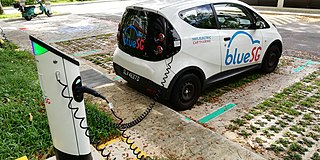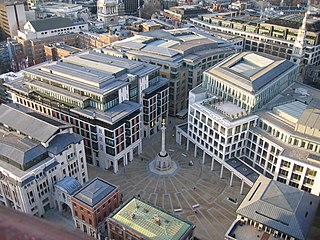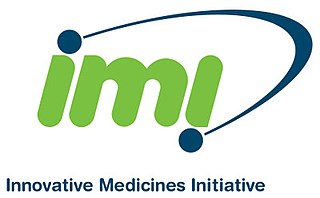Related Research Articles

The Technical University of Munich is a public research university in Munich that specializes in engineering, technology, medicine, and the applied and natural sciences.

The Gdańsk University of Technology is a technical university in the Wrzeszcz borough of Gdańsk, and one of the oldest universities in Poland. It has eight faculties and with 41 fields of study and more than 18 thousand undergraduate, as well as about 626 doctoral students. It employs 2768 people, including 1313 academic teachers.
Green chemistry, also called sustainable chemistry, is an area of chemistry and chemical engineering focused on the design of products and processes that minimize or eliminate the use and generation of hazardous substances. While environmental chemistry focuses on the effects of polluting chemicals on nature, green chemistry focuses on the environmental impact of chemistry, including lowering consumption of nonrenewable resources and technological approaches for preventing pollution.

The University of Natural Resources and Life Sciences, Vienna, or simply BOKU, founded in 1872, is an education and research centre for renewable resources in Vienna, Austria. BOKU combines expertise in the fields of natural sciences, engineering and biotechnology as well as social and economic sciences. In research and teaching, it focuses on

The Carl von Ossietzky University of Oldenburg is a university located in Oldenburg, Germany. It is one of the most important and highly regarded educational facilities in northwestern Germany and specialises in interdisciplinary and sustainable development studies and renewable energy studies with focus on solar and wind energy.

The Framework Programmes for Research and Technological Development, also called Framework Programmes or abbreviated FP1 to FP9, are funding programmes created by the European Union/European Commission to support and foster research in the European Research Area (ERA). Starting in 2014, the funding programmes were named Horizon.
The École des Mines de Nantes, or École nationale supérieure des mines de Nantes is a French high-level engineering school, part of the Institut Mines-Télécom. The school is based in Nantes, in the west of France. It was merged with Télécom Bretagne on 1 January 2017, and the new school's name is IMT Atlantique.

Clean technology, in short cleantech, is any process, product, or service that reduces negative environmental impacts through significant energy efficiency improvements, the sustainable use of resources, or environmental protection activities. Clean technology includes a broad range of technology related to recycling, renewable energy, information technology, green transportation, electric motors, green chemistry, lighting, grey water, and more. Environmental finance is a method by which new clean technology projects can obtain financing through the generation of carbon credits. A project that is developed with concern for climate change mitigation is also known as a carbon project.

The International Trade Centre (ITC) is a multilateral agency which has a joint mandate with the World Trade Organization (WTO) and the United Nations (UN) through the United Nations Conference on Trade and Development (UNCTAD).

London Stock Exchange Group plc (LSEG) is a United Kingdom-based stock exchange and financial information company headquartered in the City of London, England. It owns the London Stock Exchange, Refinitiv, LSEG Technology, FTSE Russell, and majority stakes in LCH and Tradeweb.

The Innovative Medicines Initiative (IMI) is a European initiative to improve the competitive situation of the European Union in the field of pharmaceutical research. The IMI is a joint initiative of the DG Research of the European Commission, representing the European Communities, and the European Federation of Pharmaceutical Industries and Associations (EFPIA). IMI is laid out as a Joint Technology Initiative within the Seventh Framework Programme. Michel Goldman was the first executive director, from September 2009 until December 2014.
The European Biofuels Technology Platform (BiofuelsTP) is a European Seventh Framework Programme initiative to improve the competitive situation of the European Union in the field of biofuel.
The European Steel Technology Platform (ESTEP) is a European Seventh Framework Programme initiative to improve the competitive situation of the European Union in the field of steel technology. The main objective of the programme is to produce a Strategic Research Agenda (SRA).
The European Technology Platform for Wind Energy (TPWind) is a European Seventh Framework Programme initiative to improve the competitive situation of the European Union in the field of wind energy.
This page is an index of sustainability articles.
Europe's achievements in science and technology have been significant and research and development efforts form an integral part of the European economy. Europe has been the home of some of the most prominent researchers in various scientific disciplines, notably physics, mathematics, chemistry and engineering. Scientific research in Europe is supported by industry, by the European universities and by several scientific institutions. All the raw output of scientific research from Europe consistently ranks among the world's best.

The École nationale supérieure de chimie de Lille was founded in 1894 as the Institut de chimie de Lille. It is part of the Community of Universities and Institutions (COMUE) Lille Nord de France.
Industrial Green Chemistry World (IGCW), previously known as Industrial Green Chemistry Workshop, is the first and largest Industrial convention which focuses on expanding, implementing and commercializing green chemistry and green engineering based technologies and products in the chemical industry. The first event was held in Powai, Mumbai, in 2009.
Priscilla Baker is a professor of analytical chemistry at the University of the Western Cape. She is the co-leader of SensorLab, a research platform in electrochemistry that deals with the electrodynamics of materials and sensors. She is an active member of the Academy of Science of South Africa, European Scientific Network for Artificial Muscles (ESNAM) and the Marie Curie International staff exchange scheme (IRSES).